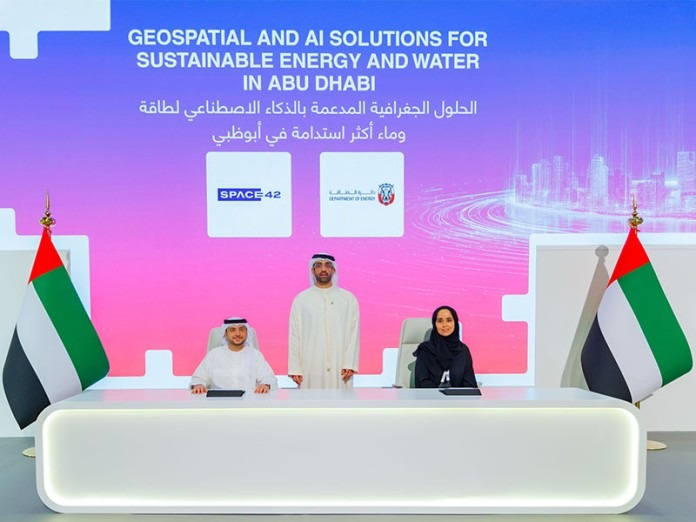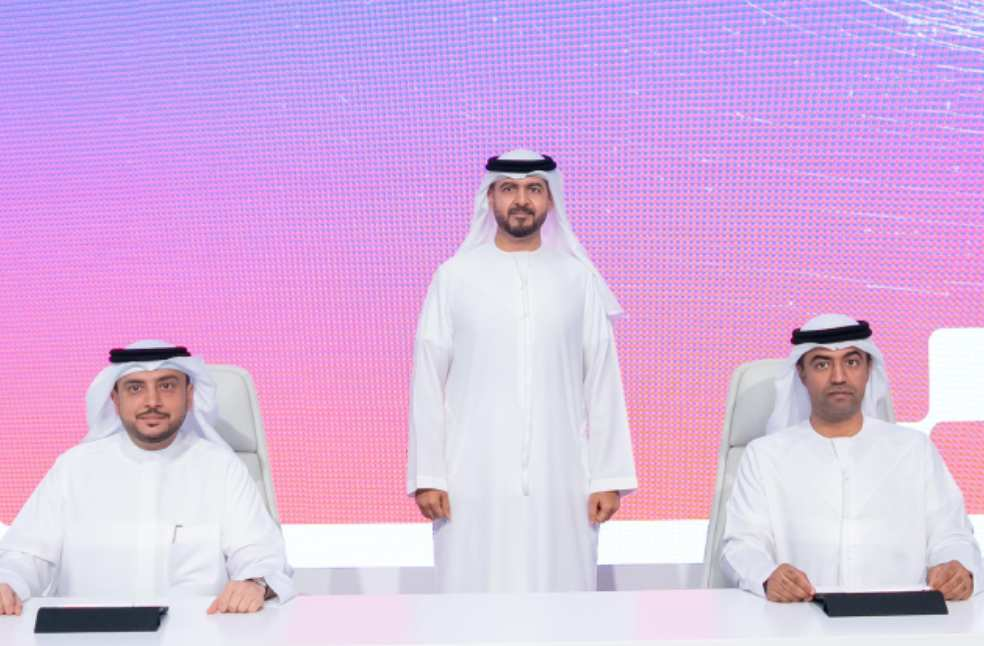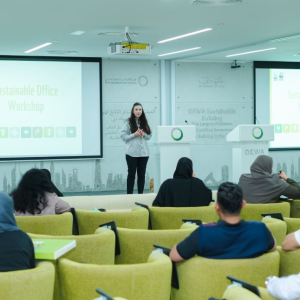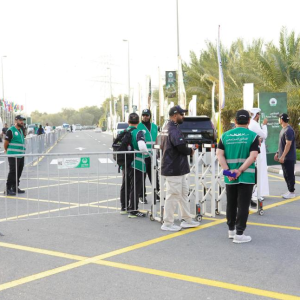Abu Dhabi has taken a major step toward transforming how cities are planned and managed. Space42, a leading space and artificial intelligence company, has partnered with the Department of Municipalities and Transport (DMT) to integrate AI into the city’s urban planning systems. The collaboration aims to use data, satellite technology, and predictive models to create smarter, more sustainable, and efficient cities for residents and future generations.
This partnership goes beyond technological advancement. It represents a vision where data and intelligence shape the future of living spaces—where every decision in city development is guided by real-time insights and long-term sustainability goals.
Why This Partnership Matters
Modern cities are complex ecosystems that require constant adaptation to meet the needs of growing populations. Abu Dhabi’s DMT manages essential city services, infrastructure, and transportation networks across the emirate. By teaming up with Space42, the DMT aims to bring advanced artificial intelligence, satellite imaging, and data analytics into its planning processes.

This partnership is about moving from reactive governance to predictive decision-making. Instead of addressing problems after they occur, the city can now anticipate and prevent them. This could mean smoother traffic, more efficient energy use, better environmental monitoring, and improved quality of life for residents.
Key Objectives of the Collaboration
Building Digital Twins and Simulation Models
One of the most exciting aspects of this partnership is the creation of digital twins—virtual replicas of Abu Dhabi’s urban environment. These models will allow planners to test different scenarios before implementing them in real life. For example, they can simulate how adding a new highway might affect traffic flow or how expanding green spaces might reduce local temperatures.

Through these simulations, decision-makers can see the potential impact of every policy or project before committing to it. This predictive capability will make urban planning more accurate, data-driven, and sustainable.
Satellite and AI-Powered Mapping
Space42 will use satellite data combined with artificial intelligence to monitor the city’s infrastructure, traffic, and environmental conditions. These mapping tools will help authorities detect changes in land use, assess infrastructure health, and monitor urban growth.
By continuously analyzing this information, the DMT can make informed decisions about maintenance, transportation, and environmental conservation. It will also allow for faster responses to urban challenges, such as traffic congestion or environmental stress.
Research, Pilot Projects, and Training
The collaboration also focuses on developing pilot projects that will test and refine these technologies. It includes training programs for municipal employees, ensuring that they can effectively use and interpret the AI-driven data.
By building this expertise within government departments, Abu Dhabi aims to create a culture of innovation and evidence-based decision-making that will continue to evolve long after the initial partnership.
Benefits for Abu Dhabi and Its Residents

Smarter Transportation and Mobility
With AI analyzing traffic data in real time, transport networks can be designed and managed more efficiently. Routes can be adjusted to reduce congestion, and public transport systems can be optimized for maximum convenience. For residents, this translates to shorter travel times, safer roads, and more accessible public transportation.
Efficient Infrastructure Management
Through continuous monitoring with AI and satellite data, authorities can identify maintenance issues before they become serious problems. For instance, early detection of road damage or infrastructure wear can save money and prevent disruptions. Predictive maintenance will keep Abu Dhabi’s infrastructure reliable, safe, and efficient.
Sustainability and Environmental Protection
As part of Abu Dhabi’s sustainability goals, this partnership will help integrate environmental monitoring into urban planning. The technology can track carbon emissions, heat levels, and vegetation cover across the city. This allows planners to make data-informed decisions about green spaces, energy use, and waste management.
By incorporating sustainability into every planning decision, Abu Dhabi aims to become a global model for environmentally responsible urban development.
Enhanced Quality of Life
Ultimately, all these efforts are directed toward improving the daily lives of residents. Cleaner air, shorter commutes, better access to public amenities, and well-maintained infrastructure contribute to a more livable and enjoyable city. The project ensures that technology serves people, not the other way around.
How AI Technology Shapes the Process
Artificial intelligence works by analyzing enormous amounts of data from satellites, sensors, and city records. It recognizes patterns, predicts trends, and suggests solutions. For instance, AI can study energy consumption to recommend ways to reduce waste or use traffic data to propose optimized routes for vehicles and public transport.
By combining all these layers of information into a single digital ecosystem, Abu Dhabi can manage its growth with precision and foresight. Every new building, road, or park becomes part of an interconnected network that responds intelligently to the city’s needs.
Challenges to Consider
While the project promises great potential, implementing AI in city planning also comes with challenges.
First, data integration is complex. The city must ensure that information from various systems and departments is accurate and compatible. Privacy and ethical considerations are also vital, as authorities must protect sensitive data while using it responsibly.
Training municipal teams to work with AI tools will be equally important. Technological change requires people to adapt, learn, and embrace new ways of working. Finally, cost and scalability remain practical considerations. The project must balance ambition with feasibility to ensure long-term success.
Why Abu Dhabi Leads in Smart City Development
Abu Dhabi’s leadership has consistently invested in innovation and sustainability. The emirate’s strategic vision aligns perfectly with the goals of this partnership. Its integrated municipal and transport authority provides a unified framework to implement new technology efficiently.
Abu Dhabi is already recognized as one of the world’s leading smart cities, with a strong focus on digital transformation, renewable energy, and sustainable growth. The partnership with Space42 strengthens that position and demonstrates the city’s commitment to using technology for public benefit.

Impact Beyond Abu Dhabi
Although this initiative focuses on Abu Dhabi, it could have a regional and global influence. Other cities across the Gulf and beyond can learn from Abu Dhabi’s model of combining artificial intelligence, space technology, and urban governance.
If successful, this project could become a reference point for how modern cities can manage growth, sustainability, and citizen welfare in the digital age. It represents a practical blueprint for future-ready urban planning—smart, connected, and adaptive.
The Road Ahead
Over the coming years, residents may see visible results of this partnership. Real-time dashboards could monitor traffic, air quality, and infrastructure conditions. Mobile applications might allow citizens to interact directly with city systems, providing feedback or tracking local developments.
Transport routes could be automatically adjusted based on traffic data, and new districts might be planned entirely using AI-driven models. This evolution will make Abu Dhabi not only smarter but also more responsive to the changing needs of its people and environment.
Conclusion
The partnership between Space42 and the Department of Municipalities and Transport marks a defining moment in Abu Dhabi’s journey toward smart and sustainable urban development. It represents the fusion of technology and human-centered planning, where artificial intelligence helps build cities that think, adapt, and care for their residents.
By embracing this forward-thinking approach, Abu Dhabi is setting new global standards in how cities can grow intelligently. It demonstrates that the future of urban living lies in data-driven insight, innovation, and a shared vision for a better tomorrow.
Do follow UAE Stories on Instagram
Read Next – UAE Families Among World’s Top Adopters of AI and Digital Assets: Report












